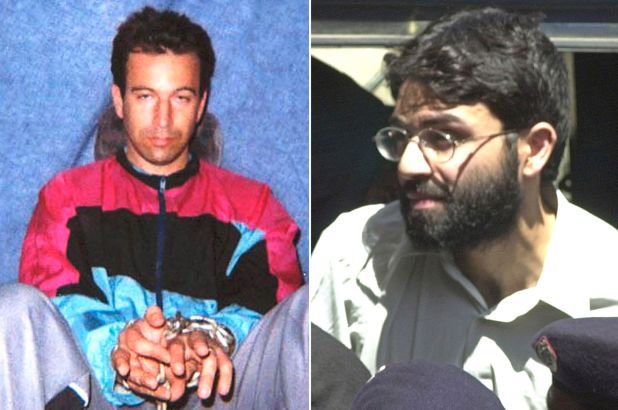
Releasing terror suspects and delaying actions when it comes to terror financing is not the way a country seeks to rebuild its international image. The decision by a Pakistani court to release Ahmad Omar Saeed Shaikh, the main suspect in the 2002 kidnapping and murder of Pearl, a Wall Street Journal reporter, will hurt Pakistan’s image. It will also damage Pakistan’s attempts to get off the grey list of the United Nations Financial Action Task Force (FATF).
Every February, June, and October, when the FATF plenaries occur, Islamabad tries its best to create the impression that it is doing its best and the world must give it some more time.
In October 2020, FATF President Dr Marcus Pleyer had asked Pakistan to “comply with remaining six items” and that “the FATF will send its onsite tram to verify progress on the ground.” Dr Pleyer emphasized that it is only after “completion of this process, the FATF will consider Pakistan to exclude from the list of jurisdictions with increased risk of terror financing that is called grey list.” In response to statements from Pakistan, he clarified that “there is no discrimination against Pakistan as the global accepted rules are applied in its case.”
Pakistan’s response demonstrated the real goal of the government. Federal Minister for Industries Hammad Azhar tweeted “FATF acknowledges that any blacklisting is off the table now. Pak has achieved impressive progress on its FATF action plan. 21 out of 27 action items now stand cleared. Remaining 6 rated as partially complete. Within a year, we progressed from 5/27 to 21/27 completed items.” Pakistan’s leaders know it is difficult to get off the grey list of the so the aim appears to be focused on finding ways to make sure the country does not go on the blacklist.
Once again, Pakistan is giving the impression that it is complying with the remaining items on the task list. While on the surface it appears that Pakistan is complying with global norms, the devil is, as always, in the details.
For example, all the terrorists charged in anti-terrorism courts belong to the Lashkar-e-Taiba (LeT) group and all of them have been charged with anti-terrorism financial offences instead of being blamed for terrorist attacks.
By charging these well-known terrorists in its courts, Pakistan seeks to convince the U.S. and other western countries, that have a decisive influence on FATF proceedings, that it is acting against terrorist entities.
Similarly, if we go into the details of the financial crimes what we see is that they will be difficult to prove primarily because of the serpentine ways in which money gets collected and sent to support terrorist activities. This often involves transnational agencies would need to track every dollar or euro that was collected at thousands of mosques, or offered at religious gatherings like those of the Tablighi Jamaat, and also donations sent by the Gulf elite and royalty through various charitable foundations. This has proven difficult and would result in delays and lack of evidence, leading the courts, as in the past, to throw out the case once Pakistan was no longer on the grey list.
If Pakistan was really interested in sending a message to all terror groups that operate on its territory, the way would be to charge them for carrying out terror attacks and activities.
Another old tactic followed by the Pakistani deep state has been to target one group of terrorists at any given time, basically make them the ‘fall guy.’ The LeT leadership has been assured of considerable returns for being the `fall guy` to save Pakistan.
Like with the many trials and acquittals of Hafiz Saeed and Omar Saeed Shaikh, any of the LeT leadership facing trial will be provided escape routes by the government which has put them on trial. It will not be the first time that such a ploy has been adopted to escape international sanction while assuring protection to the agents of destruction patronised by the state.
![]()





